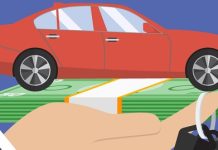A common question often asked is whether a person with disability, who receives disability benefits can get a personal loan. The short answer for this is yes. However, each case is different, and although in principle people on disability may be entitled to get a personal loan, there are a lot of factors that are assessed before determining a particular individual’s eligibility. In this article we will cover everything you need to know about acquiring a personal loan while on disability.
Eligibility Criteria
In terms of whether a person on disability can get a personal loan or not, the provisions of the Equal Credit Opportunity Act are very clear. As per the provisions laid down in this act, no lender can discriminate against a person for providing assistance, if said person is receiving public assistance.
However, the eligibility criteria for individuals on disability might be a little more specific, and you must check whether or not you meet those parameters to be qualified to get the loan. Typically these eligibility criteria revolve around the borrower’s credit score and debt-to-income ratio.
These parameters are essential for all borrowers, whether on disability or not. Moreover, individuals on disability should also rest assured about where they can secure the loans from. If you are on disability and need a personal loan, you can inquire about the same from every financial institution that offers the facility.
Also read: What You Should Know Before Taking Out a Personal Loan
The ECOA mandates all financial institutions offering loans to adhere to strict non-discriminatory practices.
In case you have a poor credit score, you may still be able to get a personal loan approved from certain companies. However, caution must be given to the fact that a loan on bad credit means that the interest rates levied will be much higher. Additionally, in most cases, extra charges such as origination fees, for example, will be higher as well. To add more to this, it is also possible that the loan amount that is offered to you, will be much restricted and lower, at times, not even sufficient to meet your needs.
How To Apply For A Personal Loan While On Disability
In order to successfully apply for a loan while on disability, the process is quite similar to what you would need to do if you were not on disability. Before applying, you must gather all necessary documents which would include your W-2 form, social security number, identification documents, income statements or proofs, and in some cases, disability assistance documents as well.
You then need to fill out the application, ensuring that all pertinent information is carefully filled. This would include your personal information, address, income details, existing debts or mortgage information, etc. You would also need to provide information about funds you receive monthly from the disability assistance.
This application is assessed by the loan providers to check whether or not you are eligible to get a loan in line with their particular policies. They also determine the amount of loan and rate of interest which they may offer along with the loan period.
Impact On Disability Assistance
Just like getting disability assistance from a public source does not disqualify you for acquiring a personal loan, similarly, having a loan of any kind, including a personal loan, does not adversely impact your disability benefits.
The loan amount will not be counted as a source of income, and it will not discount your eligibility to get supplemental security income. However, this is valid if you end up spending your loan amount. If you happen to have some of the loan amount, it may be counted towards your income resource limit.
What Can You Choose Instead Of A Personal Loan
In case you do not qualify to get a personal loan due to a bad credit score, lack of income, or some other reason, you can look into some alternatives. Although there may be several options at your disposal, some of the things you may want to look into include the following:
- Credit Cards: Credit cards are a good alternative for a personal loan. You can use them to pay for things within your credit limit, and pay off the amount at the end of the month when your bill is generated.
However, it should be remembered that credit cards may come with a high interest rate, so they must be used carefully.
Also read: When Are Personal Loans a Good Idea?
The users need to ensure that they are capable of paying it back in order to prevent defaulting and impacting their credit score.
- Other Types of Loans: Depending upon the kind of financial need that you have, instead of a personal loan, you may want to consider other types of loans as well. For instance, a car mortgage can be chosen if you wish to buy a vehicle instead of a personal loan. So, it is advisable to research other loan options to find any that suit your particular needs instead of a personal loan.
- Borrowing from Friends and Family: If you have the option to do so, borrowing money from friends and family might be a good option for you if you do not qualify for, or do not want a personal loan. However, you must be careful about returning that money in order to prevent spoiling personal relationships.
- Loan Against Home Equity: For individuals who have a home and possess sufficient equity, a home equity loan may be a good option too. In this, you will be putting up your home as collateral and acquiring a loan against it. In case you fail to pay it back, the bank can keep the house as repayment, until you manage to pay the loan back.
People who are receiving disability aid are just as eligible to receive a personal loan as other people. However, personal loans come with their own unique risks and challenges, making it vital to evaluate their suitability and necessity for your use. If you choose to get a personal loan, it is advisable to meet with multiple providers and compare their offers to find the best deal, and ensure you get favorable terms.




